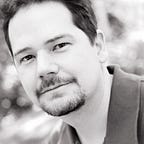Dostoevsky and the Firing Squad
The Great Russian Novelist Was Nearly Executed For Engaging in Subversive Thought
Originally posted on the Deep Thinking About Great Books Facebook Page on November 16, 2017, in the middle of our study of Brothers Karamazov.
On this day in history, November 16, 1849, Fyodor Dostoevsky was sentenced to death for allegedly engaging in antigovernment activities inside a radical intellectual circle.
The group was named the Petrashevsky Circle, founded by Mikhail Petrashevsky in St. Petersburg in 1840.
The purpose of the Petrashevsky Circle was the same as the purpose of this Facebook page, namely, to gather provocative, well-read thinkers who could push each other to deeper levels of understanding using the great texts of Western philosophy and literature.
Let’s all make a pact that, if ever some day, a group like this becomes outlawed, we will continue to meet in secret, like so many illegal intellectual circles throughout 19th century Europe. Let’s also take a moment to ponder if we’re ready to risk the firing squad that awaited the members of Petrashevsky’s Circle as punishment for their gatherings to engage in subversive thought.
We should all make ourselves ready. There are a few things in life worth dying for, and free inquiry, discussion, and debate about literature and philosophy is one of them.
Mikhail Petrashevsky was a follower of the French utopian socialist Charles Fourier. His group had a wide range of political views, but were united in opposition to the Russian feudal system that kept millions of serfs trapped in a life of servitude without property rights or full legal rights.
Hegel, Kant, Adam Smith, David Ricardo, and Marx were some of the writers whose works loomed large in the Petrashevsky circle. Reading Brothers Karamazov, we can see that Dostoevsky was a thinker who very much went his own way, and though he may have been influenced by the thinkers discussed in the circle, he was a follower of none of them.
In 1848, some members of the Petrashevsky Circle, particularly those interested in the idea of communist revolution, broke free from simple philosophical discussion, and began engaging in acts of terrorism. Combine this with the revolutions happening all over Europe in 1848, and the stage was set for Tsar Nicolas I to move on the Petrashevsky Circle.
In 1849, many members of the Petrashevsky Circle, including Dostoevsky, were arrested. On November 16, Dostoevsky was sentenced to death.
On December 22, members of the circle were marched outside to be killed by firing squad. They were separated into groups of three. Dostoevsky stood to the side, forced to watch as the first group of his intellectual peers was lined up and tied to the posts.
The guns were raised. Everyone awaited the command to fire.
Imagine those seconds of silence. Imagine being Dostoevsky, looking on. Imagine how it affected him.
In his novel The Idiot, written years later, Dostoevsky created a character who is facing death at the scaffold, and ponders what he would do if he was given one more chance to live:
“I would turn every minute into an age, nothing would be wasted, every minute would be accounted for…”
The order to fire on the Petrashevsky Circle was never given. The Tsar had written an order of reprieve beforehand, and wanted it delivered at the last possible second so as to make a spectacle of the “conspirators.”
Dostoevsky’s death sentence was downgraded to four years in a Siberian work camp. He served those years, and when they were done, he wrote all five of what are now considered his major works: Notes From the Underground, Crime and Punishment, The Idiot, Demons, and Brothers Karamazov.
Spencer Baum is the author of 7 novels. He is releasing the audiobook of his newest novel, The Tetradome Run, as a free podcast.
